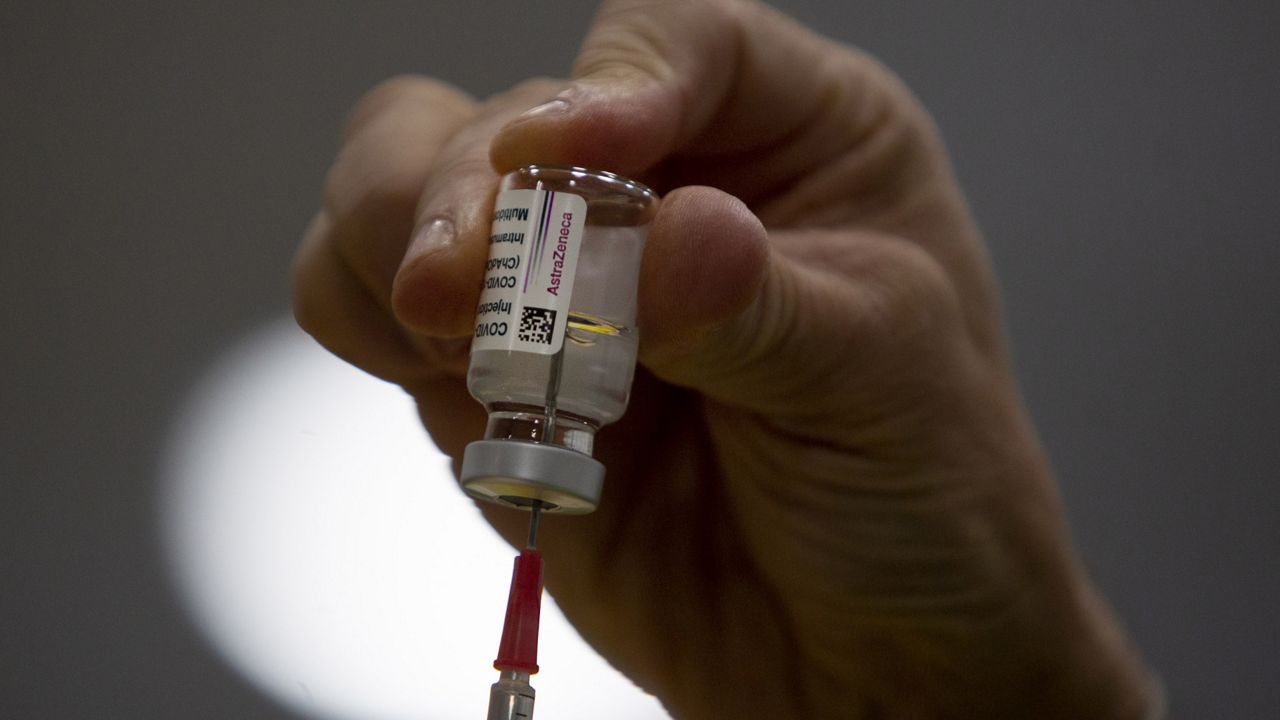The United States is “working to finalize” a plan to send a total of 4 million AstraZeneca vaccines to the two countries sharing its Northern and Southern borders, White House press secretary Jen Psaki confirmed on Thursday.
Reuters was the first to report the news, citing an unnamed government official.
Coronavirus coordinator Jeff Zients said Friday that 2.5 million doses of the AstraZeneca vaccine would go to Mexico and 1.5 million would be sent to Canada. He emphasized that because the AstraZeneca shot is not yet authorized in the U.S., “This loan will not reduce the supply of vaccine to Americans.”
While the Food and Drug Administration has not yet issued emergency use authorization for AstraZeneca’s vaccine, the United States has about a 7 million dose stockpile available to be released, she added. The government has been waiting for U.S. data to begin its approval process, and AstraZeneca is expected to apply in the coming weeks for U.S. authorization for its vaccine candidate.
"Our first priority remains vaccinating the U.S. population, but the reality is that the pandemic knows no borders and ensuring our neighbors can contain the virus is mission critical to ending the pandemic,” Psaki said during Thursday’s press briefing. “We have 7 million releasable doses available of AstraZeneca … 2.5 million of those we are working to finalize plans to lend to Mexico, and 1.5 million to Canada.”
Those “loans” could be for future AstraZeneca doses, or other vaccine doses, Psaki said. She would not clarify a timeline for when the negotiations between the countries might be finalized.
The announcement from the White House comes after criticism from international allies that the country was wasting invaluable doses of the vaccine, which despite not being approved domestically, has been given the green-light from the World Health Organization and is approved in over 70 countries.
And millions of additional doses may soon be available — according to a report from the New York Times, AstraZeneca will soon have as many as 30 million COVID vaccines sitting at U.S. warehouses.
Some of the hesitation to approve the vaccine stemmed from reports of health complications. Several European countries had suspended the use of the vaccine over the past week following reports of rare types of blood clots occurring in a small number of the millions of people who had received the shot across the continent.
But the European Union’s drug regulatory agency debunked those claims Thursday, saying the AstraZeneca vaccine is not linked to an overall increase in the risk of blood clots and that the benefits of use outweigh the risks, paving the way for European countries to resume administering the shots.
The United States has received requests for AstraZeneca doses from numerous countries, Psaki said Thursday. The administration plans to “continue those conversations” over time, but has no current plans to send doses out to countries other than Mexico and Canada.
Psaki did say that the U.S. anticipates having extra doses of the Pfizer and Moderna vaccines that could be available for shipment, but will focus on ensuring all eligible Americans are vaccinated before setting a timeline.
The Associated Press contributed to this report.



